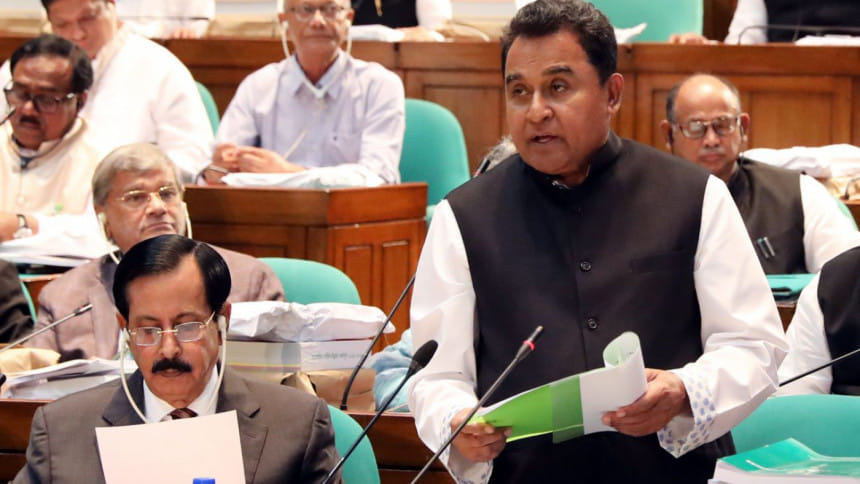Budget to open up new prospects for grassroots entrepreneurs

An ambitious budget has been proposed. All the eye-catching elements can be found in it.
To us, the only question is: What role is it going to play in the field of grassroots business? Is it going to be a motivating cyclone, a slow breeze of hope, or a disaster that may ruin the consistent rise of SMEs in Bangladesh?
In the last few years, we have seen vital changes in Bangladesh initiated by the grassroots entrepreneurs.
As far as we can see, the proposed budget has taken steps that will improve the lot of the grassroots. Milk, sugar and rice bran industries are going to be encouraged and the existing grassroots producers and entrepreneurs are going to be helped. This is a big step towards building a bigger and better entrepreneur family in Bangladesh.
The agriculture sector has been encouraged in every way possible. From no tax on essential agricultural inputs to keeping the chemical fertilizers' price unchanged for the next five years, all possible steps have been proposed to ensure the growth of the sector which influences not only agro-based businesses but also all types of grassroots businesses directly or indirectly affiliated with it.
Local bakeries will be benefitted if the proposed budget remains intact about the reduction of prices for biscuits, bread and handmade cakes.
The SME sector has been given emphasised more than expected. Tax-free turnover limit has been proposed to increase to Tk 50 lakh from Tk 36 lakh, which is a step towards encouraging the youth of Bangladesh. The proposed VAT for SMEs and encouraging banks to provide necessary support to them will open up a new opportunity to create an SME-based economy. It supports the Sustainable Development Goals 1, 2 and 8 directly.
There is, however, some concern about the situation of the health sector, which is linked with the SDG 3.
The sector has been given encouragement in various ways. Infant mortality rate has decreased and life expectancy has increased at a faster pace. But still, we can't deny that, compared to other sectors, it is not being given enough attention.
The proposed budget has allocated Tk 29,881 crore for the sector. Of the sum, the development budget is Tk 9,937 crore and Tk 19,944 crore will be used as the benefits and salaries of public servants. Every year this sector's budget is increasing, so development works and monitoring of them should be emphasised.
Focus has been given to women development. No doubt, the proposed plan is going to play a vital role in reducing the gender gap in the commercial sectors. Women taxpayers in general will also be benefitted. It is the perfect time for them to come forward and support women empowerment with a view to building a better society and a better nation.
We can see certain emphasis has been given on motor and compressor industries. The price of many raw materials will come down. As a result, these industries will certainly feel a wind of change. The same goes for specific raw materials of construction materials like bricks and pebble. The iron industry should get consideration as soon as possible.
The RMG and textile sector has continued receiving attention. The proposed policies for the sector will certainly give a boost to boutiques. It will be a relief for the grassroots entrepreneurs as the raw materials are going to be cheaper.
The cash dividend has been encouraged and the stock dividend has been discouraged. As a result, the grassroots will feel encouraged about investing in the stock market. But it should be regularly monitored to ensure the sustainability of the system.
There are a few minor issues such as increasing the cost of mobile phone use and the price of imported smartphones that may discourage the upward growth of Digital Bangladesh.
Overall, the proposed budget, in many ways, will play a vital role in opening up new prospects for the grassroot entrepreneurs.
The writer is president of the Association of Grassroots Women Entrepreneurs Bangladesh.

 For all latest news, follow The Daily Star's Google News channel.
For all latest news, follow The Daily Star's Google News channel. 



Comments